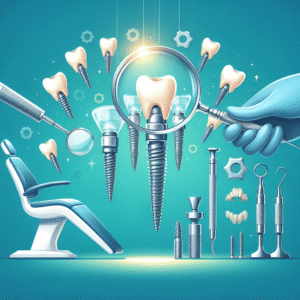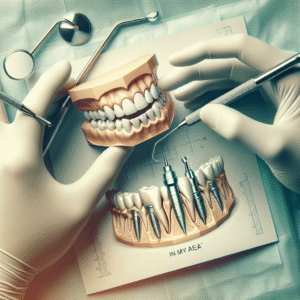All-on-4 Dental Implant Procedure Survival Rate: A Comprehensive Guide
The All-on-4 dental implant procedure has revolutionized restorative dentistry, offering a permanent solution for patients with extensive tooth loss. This innovative technique provides a full-arch restoration using just four strategically placed implants, making it a cost-effective and efficient alternative to traditional methods. One of the most critical aspects patients consider before undergoing this treatment is its survival rate. Understanding the long-term success of Full-Arch Dental Implants, including factors like bone grafting for dental implants and advanced solutions like Zygomatic Implants, is essential for making an informed decision.
In this article, we will explore the All-on-4 survival rate, compare it with other options like Implant-Supported Dentures, and discuss how Teeth-in-a-Day / Same-Day Implants can provide immediate functionality.
What Is the All-on-4 Dental Implant Procedure?
The All-on-4 technique involves placing four dental implants in the jawbone to support a full arch of prosthetic teeth. Unlike traditional implants that require six to eight implants per arch, this method maximizes stability with fewer implants by angling the posterior implants to avoid critical structures like the sinuses.
Key Benefits of All-on-4 Implants:
- Faster recovery compared to conventional implants
- Reduced need for bone grafting due to strategic implant placement
- Immediate functionality with Teeth-in-a-Day / Same-Day Implants
- High success rate comparable to traditional implant methods
Survival Rate of All-on-4 Dental Implants
The survival rate of All-on-4 implants is a crucial metric for evaluating their long-term effectiveness. Studies indicate that the 10-year survival rate for All-on-4 implants ranges between 94% and 98%, depending on patient factors such as oral hygiene, bone density, and overall health.
Factors Influencing Survival Rate:
-
Bone Quality and Quantity
- Patients with insufficient bone may require bone grafting for dental implants before the procedure.
- Zygomatic Implants are an alternative for those with severe bone loss, as they anchor into the cheekbone rather than the jaw.
-
Oral Hygiene and Maintenance
- Proper care, including regular dental check-ups and professional cleanings, significantly impacts longevity.
-
Surgeon’s Expertise
- The precision of implant placement affects osseointegration (fusion with the bone).
-
Prosthetic Material
- High-quality materials like zirconia or acrylic resin enhance durability.
Comparing All-on-4 with Other Full-Arch Solutions
1. Implant-Supported Dentures
- Typically use more implants (6-8) for stability.
- Survival rate is similar (~95%), but All-on-4 offers a fixed, non-removable solution.
2. Traditional Full-Arch Dental Implants
- Require more implants and longer healing periods.
- Survival rates are comparable, but All-on-4 reduces surgical complexity.
3. Zygomatic Implants
- Used in cases of extreme bone loss.
- Survival rates (~90-95%) are slightly lower due to the complexity of placement.
The Role of Bone Grafting in Implant Success
For patients with insufficient jawbone density, bone grafting for dental implants may be necessary before All-on-4 placement. This procedure involves adding bone material to the jaw to create a stable foundation. While it extends treatment time, it significantly improves implant survival rates.
Alternatives to Bone Grafting:
- Zygomatic Implants: Bypass the jawbone entirely, anchoring into the zygomatic (cheek) bone.
- Pterygoid Implants: Another option for patients with posterior bone loss.
Teeth-in-a-Day: Immediate Functionality with All-on-4
One of the biggest advantages of All-on-4 is the possibility of Teeth-in-a-Day / Same-Day Implants. Patients can leave the clinic with a fully functional set of teeth on the same day as surgery. While temporary prosthetics are used initially, the final restoration is placed after osseointegration is complete.
Benefits of Same-Day Implants:
- Restored chewing ability immediately
- Improved aesthetics and confidence
- No need for removable dentures
Long-Term Care for All-on-4 Implants
To maximize the survival rate of All-on-4 implants, patients must follow a strict maintenance routine:
- Daily Oral Hygiene
- Brushing, flossing, and using antimicrobial mouthwash.
- Regular Dental Visits
- Professional cleanings and implant inspections every 6 months.
- Avoiding Harmful Habits
- Smoking and excessive alcohol consumption can reduce implant longevity.
Conclusion
The All-on-4 dental implant procedure boasts an impressive survival rate of 94-98% over 10 years, making it a reliable solution for full-arch restoration. With advancements like Zygomatic Implants and Teeth-in-a-Day / Same-Day Implants, even patients with significant bone loss can achieve stable, long-lasting results. While bone grafting for dental implants may be necessary in some cases, the overall benefits—including reduced treatment time and immediate functionality—make All-on-4 a preferred choice over traditional Implant-Supported Dentures and Full-Arch Dental Implants.
By choosing an experienced surgeon and adhering to proper aftercare, patients can enjoy a durable, natural-looking smile for decades.
Frequently Asked Questions
FAQ: All-on-4 Dental Implant Procedure Survival Rate
1. What is the survival rate of All-on-4 dental implants?
The All-on-4 dental implant procedure has a high survival rate, typically ranging between 95% to 98% over 10 years, depending on patient health and aftercare.
2. What factors influence the success of All-on-4 implants?
Key factors include oral hygiene, bone density, smoking habits, and adherence to post-operative care instructions from your dentist.
3. How long do All-on-4 implants last compared to traditional implants?
All-on-4 implants can last 20 years or more with proper care, comparable to traditional implants, but with fewer required procedures and faster recovery.
4. Can All-on-4 implants fail, and what are the signs?
While rare, implant failure can occur due to infection, poor osseointegration, or excessive pressure. Signs include pain, looseness, or swelling—consult your dentist immediately if these occur.




